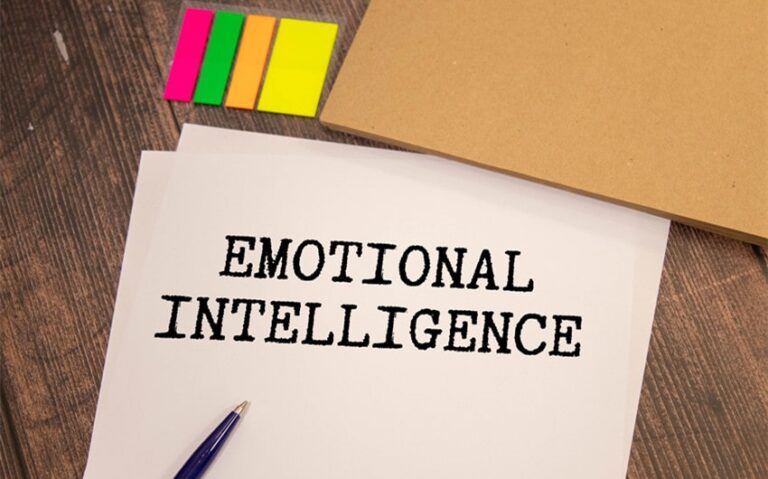15 Clear Signs of an Unhealthy Relationship You Shouldn’t Ignore
Relationships can be a wonderful source of support and happiness, but sometimes, things don’t feel quite right. When your partner’s behavior leaves you feeling uneasy, it’s important to reflect on what might be wrong. Are you often feeling disrespected, manipulated, or unhappy in the relationship? If these feelings sound familiar, it might be time to look closer at what’s happening. Understanding the signs of an unhealthy relationship can help you recognize if it’s time for a change and take steps to protect your emotional well-being.
15 Clear Signs of an Unhealthy Relationship
1. Manipulation and Control

Manipulation and control often start subtly, with one partner making small suggestions about your decisions, friends, or daily activities. Over time, these suggestions can become demands or restrictions, with the controlling partner dictating who you can see, what you should wear, or how you should spend your money.
This behavior is often disguised as concern or care—“I just want what’s best for you”—but the underlying intent is to limit your independence and decision-making power. In more extreme cases, a controlling partner may isolate you from friends or family, attempting to create a world where their influence is the only one you rely on.
The hallmark of a healthy relationship is mutual respect and trust, where both partners feel free to live their lives independently, without fear of constant surveillance or control.
2. Constant Criticism or Demeaning Behavior
A partner who frequently criticizes or demeans you may seem to be offering constructive feedback at first, but over time, the constant negativity can wear down your self-esteem. This can come in the form of harsh comments about your appearance, intelligence, career choices, or even personality traits.
Often, these criticisms are disguised as jokes, leaving you unsure if you’re overreacting or being too sensitive. In public, the criticism may be more subtle, but in private, it can escalate into full-blown verbal abuse. Eventually, this constant barrage of negative comments can make you feel inadequate, insecure, or even worthless.
In a healthy relationship, partners build each other up with encouragement and positive reinforcement, rather than tearing each other down with hurtful words and demeaning behavior.
3. Gaslighting
Gaslighting is one of the most insidious forms of emotional abuse, where one partner manipulates the other into doubting their own reality. It often begins with small, seemingly harmless denials—“I never said that” or “You’re remembering it wrong”—but over time, it can grow into a full-scale attack on your perception of the truth.
The gaslighting partner may deny events that happened, twist facts, or blame you for things that weren’t your fault. As this behavior continues, you might begin to question your own memory, judgment, or even sanity. You might feel confused or unsure of yourself, relying more and more on your partner’s version of events. In healthy relationships, both partners acknowledge each other’s feelings and experiences rather than manipulating or invalidating them.
4. Stonewalling or Silent Treatment
Stonewalling, also known as the silent treatment, is when one partner refuses to communicate, either by physically walking away during a discussion or emotionally shutting down. This behavior leaves the other person feeling abandoned, ignored, or emotionally neglected. Stonewalling typically occurs during arguments or after conflicts, as a way to avoid confrontation or as a form of punishment.
It creates a toxic cycle where issues remain unresolved, and emotional distance grows. If you find yourself repeatedly facing silence when you try to communicate, it’s not only frustrating but also harmful to the relationship. In a healthy partnership, both individuals should feel safe to express their feelings and work through disagreements constructively, rather than avoiding them altogether.
5. Excessive Jealousy
While a little jealousy in relationships can be natural, excessive jealousy signals deeper insecurities and potential control issues. A jealous partner may constantly question where you are, who you’re with, or what you’re doing, often making accusations that are not grounded in reality.
This behavior can escalate to the point where they demand to check your phone, social media accounts, or even restrict who you talk to. Over time, this possessiveness can lead to feelings of isolation and mistrust, as the jealous partner attempts to control your interactions with others.
In contrast, a healthy relationship is based on trust, where both partners feel secure enough to maintain friendships and social connections outside of the relationship. Excessive jealousy is often a sign of insecurity and control, rather than love.
6. Invasion of Privacy

In a healthy relationship, both partners maintain personal boundaries and respect each other’s privacy. However, in an unhealthy relationship, one partner may invade the other’s privacy by going through their phone, emails, social media accounts, or even tracking their location without permission. This kind of behavior stems from a lack of trust and can create a constant sense of surveillance and control.
Over time, this invasion of privacy can lead to feelings of paranoia, anxiety, and a loss of personal freedom. A partner who truly respects you will trust you and give you space to maintain your own personal life without constant monitoring or interference.
7. Physical Abuse
Physical abuse is one of the most obvious and dangerous signs of an unhealthy relationship. It can range from seemingly minor incidents like grabbing or pushing to more extreme acts of violence such as hitting, choking, or threatening with weapons. Often, physical abuse starts small and escalates over time, with the abuser making excuses for their behavior or blaming the victim.
Even if the physical acts seem infrequent, the threat of violence can hang over the relationship like a dark cloud, creating an environment of fear and control. No matter the frequency or intensity, physical abuse is never acceptable. In a healthy relationship, both partners feel physically and emotionally safe at all times.
8. Lying or Deception
Trust is the foundation of any healthy relationship, but in an unhealthy one, lying and deception can become the norm. If your partner is frequently dishonest about their whereabouts, who they’re with, or what they’re doing, it can create an atmosphere of doubt and insecurity.
Small lies often escalate into bigger deceptions, leaving you constantly second-guessing your partner’s words and actions. This erosion of trust can make it impossible to feel secure in the relationship. A healthy relationship is built on openness and honesty, where both partners can rely on each other to be truthful and transparent.
9. Disregard for Boundaries
Personal boundaries are essential in any relationship, and a partner who ignores or disrespects them is displaying a serious sign of an unhealthy relationship. Whether it’s pushing you to share more than you’re comfortable with, invading your personal space, or pressuring you into activities you’re not ready for, a partner who disregards your boundaries is not respecting your autonomy.
Over time, this behavior can make you feel like you have no control over your own life. In a healthy relationship, boundaries are mutually respected, and both partners feel safe to express their limits without fear of retribution or manipulation.
10. Neglect or Indifference
Neglect in a relationship occurs when one partner consistently ignores the emotional, physical, or mental needs of the other. This could manifest in many ways, from not listening to your concerns, failing to support you during tough times, or simply being emotionally unavailable.
A partner who is indifferent to your feelings or needs is showing a lack of care and consideration, which can leave you feeling isolated and unloved. Healthy relationships thrive on mutual support and care, where both partners actively engage in each other’s well-being. Chronic neglect, on the other hand, signals that the relationship is one-sided and unhealthy.
11. Selfish Behavior

A relationship becomes unhealthy when one partner consistently puts their needs above the other’s. Selfish behavior can manifest in many ways—your partner may always make decisions based solely on what benefits them, show little interest in your happiness, or expect you to always adjust to their preferences.
Whether it’s disregarding your feelings or expecting constant support without giving any in return, this behavior creates an imbalance in the relationship. Over time, it can lead to resentment and feelings of neglect. Healthy relationships are built on compromise and understanding, where both partners are equally invested in each other’s well-being and happiness.
12. Over-Reliance or Codependency
In a codependent relationship, one partner often becomes overly reliant on the other for emotional fulfillment, self-worth, and even basic decision-making. It may feel flattering at first, but it quickly becomes exhausting. If your partner needs constant reassurance, approval, or emotional support and doesn’t seem able to function independently, this can create an unhealthy dynamic.
Over time, you may find yourself losing your sense of self as you become more focused on meeting their needs than your own. Codependency can lead to suffocating closeness, where there’s little room for individual growth or personal boundaries. In a healthy relationship, both partners should feel capable of thriving on their own while offering support to each other.
13. Fear of Ending the Relationship
One of the clearest signs of an unhealthy relationship is the feeling of being trapped. If the thought of ending the relationship fills you with fear, anxiety, or guilt, it’s likely that the relationship has crossed into unhealthy territory. You might be afraid of how your partner will react if you leave, worried about threats, or even concerned about financial security.
In some cases, emotional manipulation or threats of harm can make leaving feel impossible. A healthy relationship is built on mutual respect and the understanding that both partners can walk away if things aren’t working. Feeling like you have no choice but to stay is a sign that something is seriously wrong.
14. Constant Unhappiness or Anxiety
If spending time with your partner often leaves you feeling drained, anxious, or unhappy, it’s important to reflect on why. You might feel nervous about their reactions, constantly worried about doing something wrong, or walking on eggshells to avoid conflict. These feelings are not normal or healthy in a relationship.
In contrast, a strong relationship should make you feel supported, happy, and secure. If the relationship is a consistent source of stress or emotional pain, it’s a sign that your well-being is being compromised. Emotional health is key in any relationship, and constant anxiety is a clear indication of deeper problems.
15. Excessive Arguments or Conflict
While disagreements are part of any relationship, constant fighting is a red flag. If you find that even minor issues quickly escalate into full-blown arguments, it could point to unresolved frustrations or a lack of healthy communication. These frequent conflicts may involve personal attacks, yelling, or blame-shifting, leaving you emotionally exhausted.
Healthy relationships involve occasional disagreements, but they are resolved through mutual respect and constructive dialogue. When conflict becomes the default mode of communication, it can erode the emotional bond between partners and foster feelings of resentment or disconnect.
What to Do if You’re in an Unhealthy Relationship
Realizing you’re in an unhealthy relationship can be difficult, but it’s an important first step toward protecting your well-being. Here are some steps you can take to regain control and improve your situation:
1. Acknowledge the Problem
The hardest part of being in an unhealthy relationship is often admitting that something is wrong. Many people ignore red flags or make excuses for their partner’s behavior, believing things will get better over time. However, recognizing the signs of an unhealthy relationship and accepting that your well-being is at risk is a critical first step.
Be honest with yourself about how the relationship is affecting your mental, emotional, and even physical health. Reflect on whether your relationship aligns with what you deserve—a safe, supportive, and respectful partnership.
2. Talk to Someone You Trust
Reaching out to a trusted friend, family member, or counselor can provide you with much-needed perspective and emotional support. Sometimes, simply talking about your experiences can help you see the situation more clearly and recognize unhealthy patterns. Others can offer advice, listen without judgment, and remind you that you are deserving of a healthy, loving relationship.
Often, people outside the situation can see things that are hard for you to recognize when you’re emotionally involved. If you’re afraid to speak openly, online support groups or helplines can offer anonymous guidance and resources.
3. Set Boundaries
If you decide that you want to try to work on the relationship, setting clear boundaries is essential. Communicate openly with your partner about what behaviors are unacceptable and what changes need to be made for the relationship to move forward. This could involve setting limits on controlling behaviors, demanding respect for your privacy, or insisting on better communication.
Be specific about your needs, and don’t be afraid to enforce these boundaries. If your partner refuses to respect them or continues the harmful behaviors, it may be a sign that the relationship is unlikely to change.
4. Consider Professional Help
Unhealthy relationships often involve deep emotional wounds or unresolved issues that can be difficult to address on your own. Couples therapy or individual counseling can provide a safe space to explore these issues and work toward healing.
A trained therapist can help both you and your partner develop healthier communication patterns, understand each other’s needs, and create a more balanced relationship. If your partner is unwilling to seek help or denies there is a problem, this could be a sign that they are not committed to making the necessary changes.
5. Plan for Your Safety
If your relationship involves any form of physical abuse or if you feel threatened, your safety should be your top priority. Develop a plan to leave the relationship safely, whether that means confiding in a friend, finding a temporary place to stay, or contacting a domestic violence hotline for advice.
It’s important to have a clear exit strategy, especially if your partner has a history of violence or manipulation. Don’t wait until the situation escalates—trust your instincts, and take action if you feel unsafe. Many communities offer resources like shelters, hotlines, and legal aid to help those in abusive situations.
6. Know When It’s Time to Leave
Not all relationships can be saved, and sometimes the healthiest option is to leave. If you’ve set boundaries, sought help, and tried to work on the relationship but nothing changes, it may be time to walk away. Ending a relationship can be emotionally painful, especially if there are strong feelings involved or if the relationship has lasted a long time.
However, staying in a toxic relationship can have long-term effects on your mental health, self-esteem, and overall well-being. It’s important to prioritize your happiness and recognize when a relationship is doing more harm than good.
7. Take Time for Self-Care and Healing
Leaving an unhealthy relationship is a process, and the emotional aftermath can be challenging. Take time for self-care and healing—focus on rebuilding your self-confidence, reconnecting with supportive friends or family, and exploring activities that bring you joy.
It’s important to remind yourself of your worth and understand that leaving an unhealthy relationship is a courageous act of self-love. Therapy, journaling, or engaging in hobbies that make you feel good can help you recover from the emotional toll and prepare you for healthier relationships in the future.







